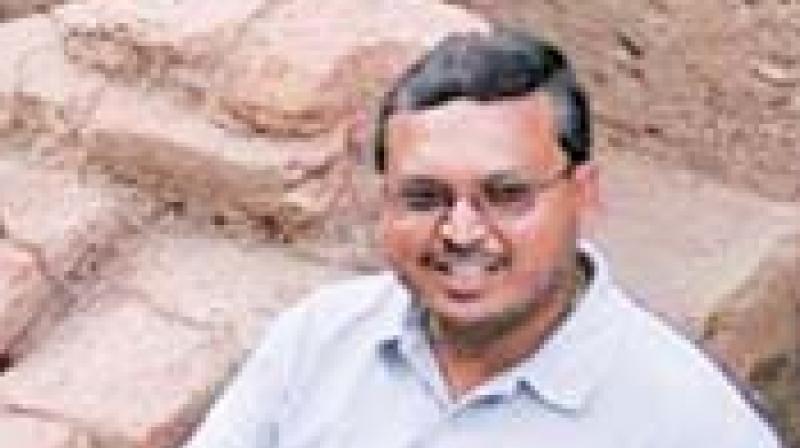ASI gets 2 weeks to bring officer back to Keezhadi
Also, Amarnath was denied permission to deliver a lecture in June last year in the U.S. on the Keezhadi excavation.

Chennai: Madras high court has given the Archaeological Survey of India (ASI) two weeks to transfer its superintending archaeologist Amarnath Ramakrishna back from his Assam posting to continue his excavation work at Keezhadi in SivagangaI district down south.
His work had established in 2015 a great civilisation thriving in the Vaigai river basin much before any other civilisation in the Indian subcontinent but the official was suddenly transferred to Assam in 2017, drawing all-round criticism that the BJP Government was trying to suppress the finding of the Vaigai civilisation.
The High Court in ordering that Amarnath be transferred back to continue his Keezhadi work, also wondered why the Central Government "is so adamant on this issue" in taking Amarnath away from his excavation when in truth the work would have got global recognition for the "pride of Tamil Nadu".
Hearing a petition filed against the officer's transfer, a Bench comprising Justices R Mahadevan and P D Audikesavalu said the Central government should show more interest in proceeding with the excavations carried out in the Vaigai river bed as the work had brought out evidence of an ancient civilisation that had thrived there.
"When the excavations get completed, the pride of Tamil people would get recognised worldwide but we wonder why the Central government is so adamant on this issue," the court said.
Amarnath's transfer in 2017 had drawn all-round criticism as his work had brought out substantial evidence to show the existence of a great civilisation in the Vaigai region dating back to 200 BC. The team of Amarnath had brought out more than 8,000 artefacts, Tamil Brahmi inscriptions, gold coins and jewellery, besides iron tools that amply proved the presence of a thriving urban civilisation there during the Sangam era that is hailed as the golden period for Tamil language and literature.
Not only did the Centre transfer Amarnath out to Assam, the excavation work was starved of funds and criticism erupted that the fund allocation was delayed because the Keezhadi excavations showed evidence of a secular culture. Also, Amarnath was denied permission to deliver a lecture in June last year in the U.S. on the Keezhadi excavation and was not allowed to file his final report on the findings in October.

